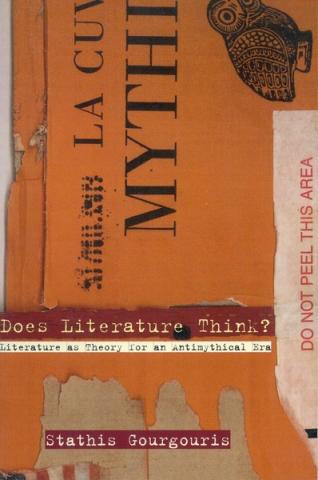Does Literature Think? Literature as Theory for an Antimythical Era
*********************
What is the process by which literature might provide us with access to knowledge, and what sort of knowledge might this be? The question is not simply whether literature thinks, but whether literature thinks theoretically—whether it has a capacity, without the external aid of analytical methods that have determined Western philosophy and science since the Enlightenment, to theorize the conditions of the world from which it emerges and to which it addresses itself.
Suspicion about literature's access to knowledge is ancient, at least as old as Plato's notorious expulsion of the poets from the city in the Republic. With full awareness of this classical background and in dialogue with a broad range of twentieth-century thinkers, Gourgouris examines a range of literary texts, from Sophocles' Antigone to Don DeLillo's The Names, as he traces out his argument that literature possesses an intrinsic theoretical capacity to make sense of the nonpropositional.
Contents:
Preface
PART I From Law to Myth
2 Enlightenment and Paranomia
3 The Concept of the Mythical
4 Philosophy's Need for Antigone
PART II Theatrical Matters
5 The Gesture of the Sirens
6 The Dream Reality of the Ruin
PART III Eluding the Name
7 Research, Essay, Failure
8 A Lucid Drunkenness
9 DeLillo in Greece
10 Beyond the Damaged Life
Reviews:
Karl Simms, Philosophy in Review 24 (2004) https://philpapers.org/rec/SIMSGD
Dimitris Vardoulakis, Colloquy 8 (2004) https://www.monash.edu/__data/assets/pdf_file/0009/1764855/vardoulakis.pdf
Charles Altieri, Comparative Literature Studies 41 (2004) https://www.researchgate.net/publication/249902335_Does_Literature_Think_Literature_as_Theory_for_an_Antimythical_Era_review
